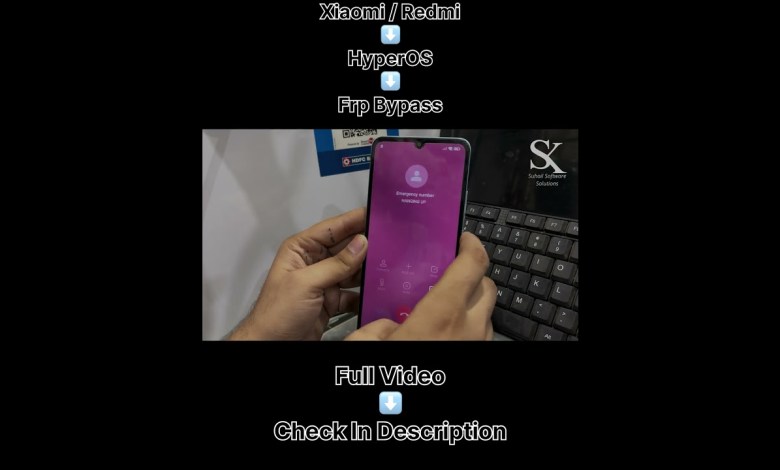Unlocking Secrets: Discover the Latest Redmi MIUI 14 Bypass and FRP Solutions!

All Redmi MIUI 14 Bypass / Redmi Frp Bypass New Security / Redmi Note 9 Pro Frp Bypass New Security
The Power of Music: A Universal Language
Introduction
Music has a unique ability to transcend boundaries and connect people from different cultures and backgrounds. It is often referred to as a universal language that expresses emotions, ideas, and stories without the need for words. In this article, we will explore the deep-rooted impact of music in our lives and why it is something that many people cherish, as suggested by the phrase, "it’s all I like."
The Emotional Connection to Music
Understanding Our Feelings
Have you ever found yourself caught in an emotional moment while listening to a song? Whether it’s joy, sadness, nostalgia, or excitement, music has an uncanny ability to evoke strong feelings within us. Research has shown that music activates the brain’s reward system, releasing dopamine—the "feel-good" neurotransmitter. This emotional connection leads many to say, "it’s all I like."
Personal Soundtracks
In our journeys through life, we often create personal soundtracks that accompany significant moments. From the first kiss to heart-wrenching farewells, music serves as a backdrop to our experiences. Many people find solace in their favorite tracks during tough times or celebratory moments, reinforcing their emotional ties to specific songs.
The Cultural Significance of Music
Music Across the Globe
Music is a reflection of cultural identity. Each region and community has its unique musical styles, instruments, and traditions. From African drumming to Western classical music, these diverse forms represent the history, struggles, and aspirations of different peoples. The phrase "it’s all I like" resonates with many because it encompasses a love that transcends these cultural barriers.
Music as a Form of Protest
Throughout history, music has been an essential tool for social and political movements. Songs have the power to unite people in a common cause or express dissent against oppression. From the civil rights movement to contemporary social justice issues, music amplifies voices that may otherwise go unheard. It becomes a rallying cry for change, bringing people together under a shared goal.
The Therapeutic Benefits of Music
Music and Mental Health
Numerous studies have shown that music can significantly improve mental health. Music therapy has been successfully utilized to help individuals cope with depression, anxiety, and trauma. The soothing qualities of music create a safe space for healing and self-expression, reaffirming the notion that it’s all about what we love—and for many, that love is music.
Enhancing Focus and Productivity
Music isn’t just about emotions; it can also enhance cognitive functions. Many people find that listening to specific genres, like classical or ambient music, improves their focus and productivity. This phenomenon gives rise to a new saying: “It’s all in the rhythm.” The right music can create a favorable environment for studying, working, or even exercising.
Building Community Through Music
Sharing Experiences
Music has a way of bringing people together. Whether at concerts, festivals, or informal gatherings, shared musical experiences create bonds between individuals. The phrase "it’s all I like" can affirm a sense of belonging, as people unite over their mutual appreciation for specific artists, genres, or songs.
The Role of Technology
With the rise of streaming services and social media, sharing music has never been easier. Platforms like Spotify, Apple Music, and YouTube allow people to discover and share tracks across the globe. This instant access to music fosters a sense of community, enabling fans to connect with artists and each other like never before.
The Evolution of Music
From Tradition to Modernity
While traditional forms of music continue to play a vital role in cultures worldwide, modern genres are constantly evolving. Influences from various musical styles lead to innovative sounds and collaborations that challenge the status quo. Genres like hip-hop, EDM, and indie continue to rise, and with them, a new generation that lives by the mantra, “it’s all I like.”
The Impact of Globalization
Globalization has not only made music more accessible but has also allowed for the blending of genres and styles. Today, artists blend traditional elements with modern instrumentation, creating something entirely new. This evolution showcases the beauty of musical fusion, proving that music can adapt while maintaining its core—connection and expression.
Conclusion
Music is undoubtedly a vital aspect of human life, enriching our experiences and emotions. As we explore the various dimensions of music—from its emotional significance to its cultural impact—we come to understand why it resonates so deeply with so many people. Whether it’s a simple melody that brings us joy or an anthemic song that unites us for a cause, music is a compelling force that reflects who we are. Indeed, it can be summed up in one straightforward yet profound statement: "it’s all I like."
So the next time you find yourself humming that favorite tune or passionately discussing an artist you admire, remember that you are part of a larger community united by this beautiful, universal language called music.
#Redmi #MIUI #Bypass #Redmi #Frp #Bypass













